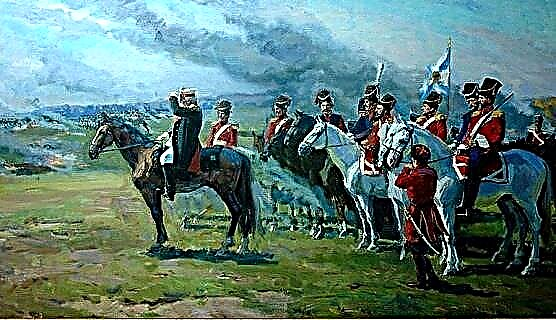Franz Peter Schubert (1797-1828) - Austrian composer, one of the founders of romanticism in music, author of about 600 vocal compositions, 9 symphonies, as well as many chamber and solo piano works.
There are many interesting facts in Schubert's biography, which we will talk about in this article.
So, before you is a short biography of Franz Schubert.

Schubert biography
Franz Schubert was born on January 31, 1797 in Vienna, the capital of Austria. He grew up in a simple family with a modest income.
His father, Franz Theodor, taught at the parish school, and his mother, Elisabeth, was a cook. The Schubert family had 14 children, 9 of whom died in infancy.
Childhood and youth
Schubert's musical talent began to manifest itself at an early age. His first teachers were his father, who played the violin, and his brother Ignaz, who knew how to play the piano.
When Franz was 6 years old, his parents sent him to a parish school. A year later, he began studying singing and playing the organ. The boy had a pleasant voice, as a result of which he was later adopted by the "singing boy" in the local chapel, and also enrolled in a school with a boarding house, where he made many friends.
During the biography of 1810-1813. Schubert's talent as a composer awakened. He wrote a symphony, an opera and various songs.

The most difficult subjects for the young man were mathematics and Latin. However, no one doubted his musical talent. In 1808 Schubert was invited to the imperial choir.
When the Austrian was about 13 years old, he wrote his first serious piece of music. A couple of years later, Antonio Salieri began to teach him. An interesting fact is that Salieri agreed to give Franz lessons for free, because he saw talent in him.
Music
When, during his teens, Schubert's voice began to break, he had to leave the choir. After that he entered the teachers' seminary. In 1814 he got a job at a school, teaching the alphabet to elementary school students.
At that time, biographies Franz Schubert continued to compose musical works, as well as study the works of Mozart, Beethoven and Gluck. He soon realized that working at school was a real routine for him, as a result of which he decided to quit it in 1818.
By the age of 20, Schubert wrote at least 5 symphonies, 7 sonatas and about 300 songs. He composed his masterpieces “around the clock”. Often the composer woke up in the middle of the night to record the melody he heard in his sleep.
Franz often attended various musical evenings, many of which took place in his home. In 1816, he wanted to get a job as a conductor in Laibach, but was refused.
Soon a momentous event took place in Schubert's biography. He met the famous baritone Johann Fogal. His songs performed by Vogl gained great popularity in high society.
Franz wrote many iconic works, including "The Forest Tsar" and "Erlafsee". Schubert had wealthy friends who liked his work and who from time to time provided him with financial assistance.
However, in general, the man never had material wealth. The opera Alfonso and Estrella, which Franz admired, was rejected. This led to financial difficulties. In 1822 he started having health problems.
At that time, Schubert moved to Zheliz, where he settled in the estate of Count Johannes Esterhazy. There he taught music to his daughters. In 1823 the man was elected an honorary member of the Styrian and Linz Musical Unions.

Around the same time, the musician presented his song cycle "The Beautiful Miller Woman", based on the words of Wilhelm Müller. Then he wrote another cycle, "Winter Road", which was attended by pessimistic notes.
Schubert's biographers claim that due to poverty, he was forced to periodically spend the night in attics. However, there he continued to compose works. In the last years of his life he was in dire need, but he was ashamed to ask friends for help.
An interesting fact is that in the spring of 1828 the musician gave the only public concert, which was a great success.
Personal life
Schubert was distinguished by gentleness and shyness. The composer's meager financial position prevented him from starting a family, since the girl with whom he was in love chose to marry a rich man.
Franz's beloved was called Teresa Gorb. It is curious that the girl could hardly be called a beauty. She had light brown hair and a pale face with traces of smallpox.

However, Schubert paid more attention not to Teresa's appearance, but to how she carefully listened to his musical works. During such periods, the girl's face became rosy, and her eyes literally radiated joy. But since Gorb grew up without a father, the suit persuaded her daughter to become the wife of a rich pastry chef.
According to rumors, in 1822 Franz contracted syphilis, which was then considered incurable. From this it can be assumed that he used the services of prostitutes.
Death
Franz Schubert died on November 19, 1828 at the age of 31 after a 2-week fever caused by typhoid fever. He was buried at the Wehring Cemetery, where his idol Beethoven was recently buried.
It is curious that the composer's great symphony in C major was discovered only 10 years after his death. In addition, many unpublished manuscripts remained after his death. For a long time no one knew that they belonged to the pen of an Austrian composer.
Schubert Photos
















